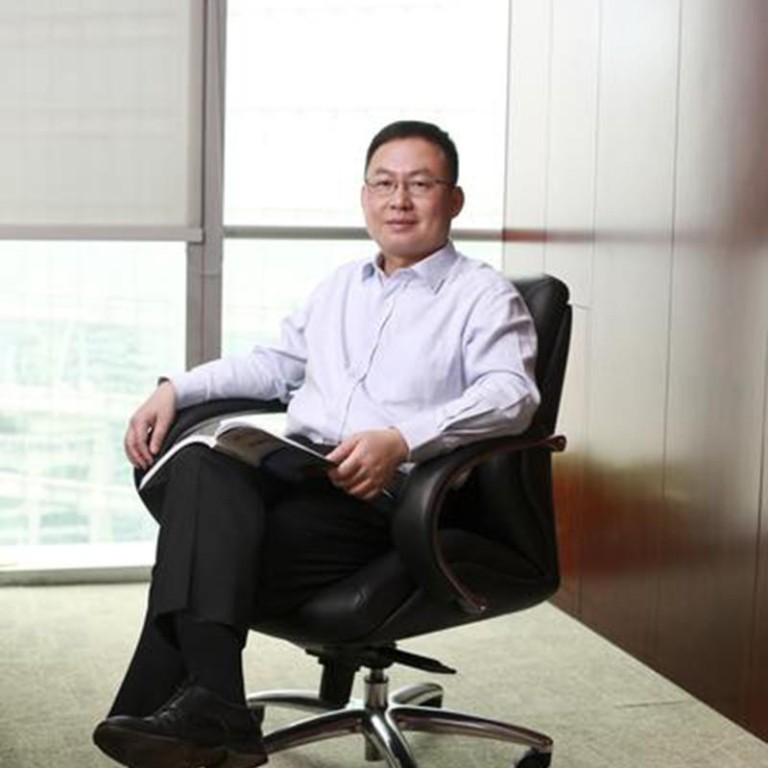
Developer Xinyuan to issue onshore bonds to cut funding costs
Xinyuan Real Estate's George Liu talks about plans to raise a dollar fund to finance new developments in the United States, and the opportunities and challenges he faces there
Less than half a year into his new job as the chief financial officer of Xinyuan Real Estate, George Liu had 40 meetings last month in New York with global investors, to address concerns including the company's finances and China's economic slowdown.
A Cornell University MBA graduate, Liu previously worked as chief financial officer in Asia-Pacific for global property consultancy Savills.
His plan for Xinyuan, an early adventurer in Chinese developers' rising overseas expansion, is to raise a US dollar fund to capitalise on its good track record in the US real estate market, operating all alone instead of as joint ventures with local partners.
Another step is to issue bonds onshore to cut funding costs, which may take a while, as the queue for regulatory approvals now is long.
We are also planning to, but we haven't submitted an application yet. We need to get domestic credit ratings and work out our financials. The ceiling is 40 per cent of net assets. We will make our best effort. The queue is already long. And it seems regulatory approvals are now slowing down. The window is not open forever.
Now interest rates for onshore bonds are much lower, so offshore bond yields may also be reduced in the future. Otherwise, there will be no new issuances. If that's the case, it's not a bad idea to refinance our maturing US dollar debts in 2018.
Trust loans account for about 60 per cent of our yuan debts, at about 10 to 11 per cent per annum. The other 40 per cent is from banks, at 6 to 8 per cent. That is cheaper than our two US bonds, at 13 per cent.
If we can issue onshore bonds, possibly at about 6 to 7 per cent, it will greatly cut our funding costs.
Less than 20 per cent of the buyers are from China. The majority are local Jewish families.
Next, we'll build a condo project in Manhattan. That project will probably attract more Chinese buyers.
Our plan is to invest it in small projects, for example US$100 million to US$200 million, totally with our own money. But to invite institutional investors to co-invest in big projects operated by us.
Some of our US dollar bond investors said they could invest in our US dollar real-estate fund upon maturity.
We are suitable for institutions that have got several tens of millions of US dollars, but are not big enough to separately build a team for US investment. We have a team in New York. For us, it does not add much extra cost to manage two or 10 projects, as long as they are in or near New York.
Our team is local and diversified. We never think as a Chinese firm in New York - we only have a Chinese shareholder. We can compete well with strong local players.
Not yet. We feel those who did go to small cities are mostly there for personal reasons. Most are still in New York, California and Florida.
We had expected it would be hard to make money in the United States, but it turned out to be easier than in China. Although there are a lot of regulations and thus litigation risks, all are on the table. If you have a strong local team, it will help you find a solution. If there's no solution, then don't do the project.
What matters is not only the smooth teamwork of your local members, but also the coordination and trust between them and the headquarters.
Of course. We started from small projects. There is a steep learning curve in the first two projects, to know the culture, environmental rules and litigation risks. Some of the details will only be revealed to actual operators of the projects, and companies acting as financial advisers will never learn them.
Many Chinese developers say they've done projects in the United States. Most often, these projects are not operated by them, but by their local partners. They still need to team up with local partners when starting new projects.
The road to operating a project by oneself is bumpy but worthwhile.
The latest two US projects haven't been included in our revenues yet, probably next year or even the year after.
Mainly by loans from local banks and other financial institutions.
We are talking to three lenders for the Manhattan project.
We have talked with Chinese banks there, too, but their US branches are still small. We will keep exploring [with them]. For us, operating as a local developer, the Chinese element is not a plus. Most of our current partners are local, including in construction, engineering, asset management and media.
No, because sales are still improving, although prices haven't risen much. September sales were not bad, although not as strong as expected.
Pricing depends on location and strategy. We increased prices for a project in Suzhou but sales were still buoyant.
For the rest of this year, we will not rush to raise prices if sales show no big rebound. For some projects that do not sell well, we will also cut prices.

